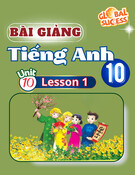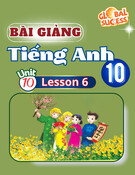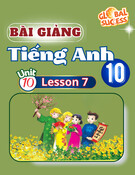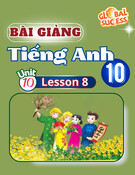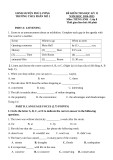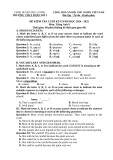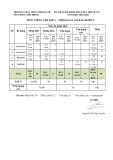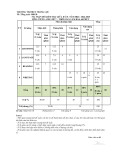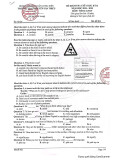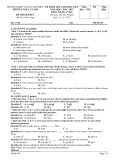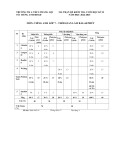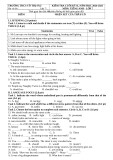
13
UNIT 10: CONSERVATION
VOCABULARY
1. inhabit (v) /ɪnˈhæbɪt/: to live in a place.
➔ ……………………….. (a)
➔ ……………………….. (n): the natural environment in which an animal or plant usually
lives.
E.g.: With so many areas of woodland being cut down, a lot of wildlife is losing its natural
habitat.
2. convenient (a) /kənˈviːniənt/: useful to you because it saves you time, or does not spoil your
plans or cause you problems. → OPP: ……………………….. (a)
➔ ……………………….. (n) → OPP: ……………………….. (n)
➔ ……………………….. (adv) → OPP: ……………………….. (adv)
3. conserve (v) /kənˈsɜːv/: to protect something and prevent it from being changed or destroyed.
➔ ……………………….. (n)
E.g.: Conservationists are fighting to save our hedgerows.
➔ ……………………….. (n)
4. value (n) /ˈvæljuː/: the amount of money that something is worth.
➔ ……………………….. (a) /ˈvæljuəbl/ → OPP: ……………………….. = worthless
➔ ……………………….. (a) /ɪnˈvæljuəbl/: extremely useful
➔ ……………………….. (v): to think that someone or something is important.
➔ value somebody/ something for something
E.g.: Mr. Yeo valued Jan for her hard work.
5. create (v) /kriˈeɪt/: to make something exist that did not exist before.
➔ ……………………….. (n): the act of creating something, or the thing that is created.
➔ ……………………….. (n): the ability to use your imagination to produce new ideas,
make things etc.
➔ ……………………….. (n): someone who has invented something.
➔ ……………………….. (a)
➔ ……………………….. (adv)
6. eliminate (v) /ɪˈlɪməneɪt/: to completely get rid of something that is unnecessary or unwanted.
→ SYN: ………………………..
➔ ……………………….. (n)





